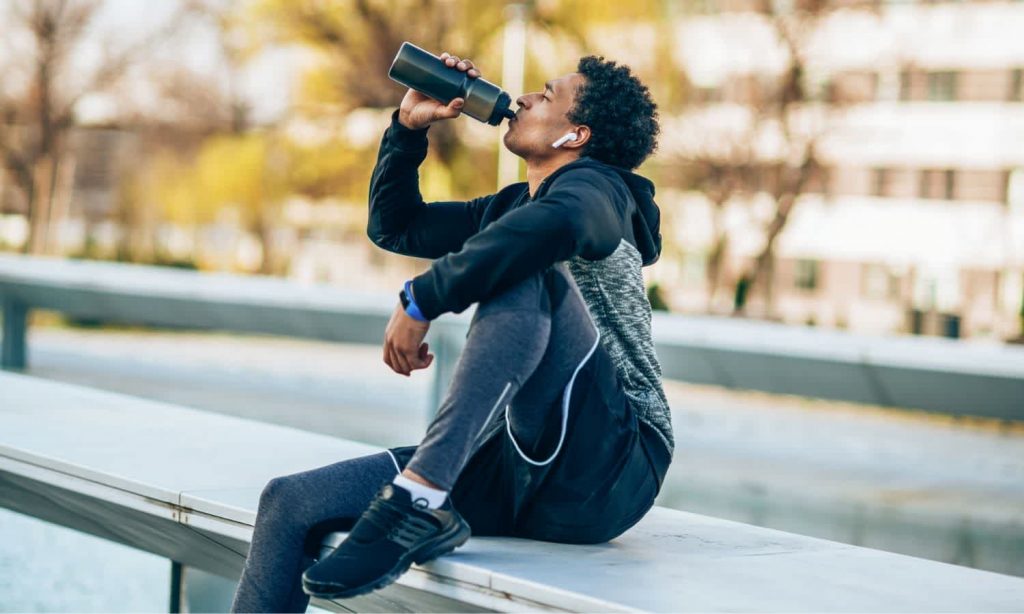To shake or not to shake? Flip through any fitness magazine or take a step inside most gyms and you’ll notice that protein supplements and exercise seem to go hand in hand.
It’s true that protein is essential for muscle growth and recovery, with protein powders being a quick and convenient source. But who needs these protein shakes, and when it comes to your training goals, are whole foods just as good? Here’s the scoop, so you can figure out if a supplement is right for you.
The ingredients
There are a wide variety of protein powders available on the market, however, the differences between them can be pinpointed to three main characteristics:
- The type of protein used (animal or plant-based)
- The carbohydrate content
- Any additional extras such as sweeteners, specific amino acids, proposed fat burners, thickeners and emulsifiers.
The most common type of protein used is whey, which is derived from milk. The two main varieties are whey concentrate and whey isolate. Whey protein concentrate is slightly lower in protein than whey isolate, and also contains small amounts of carbohydrate (primarily the sugar lactose) and fat.
Whey isolate, which is 90% protein by weight, is seen as the superior form because it is more rapidly absorbed and often tastes better. However, if dairy doesn’t work for you, there are several plant-based proteins available, including soy, pea, and rice-based formulas.
How much do you need?
The type and amount of protein you need will depend on your overall diet, how often and how intensely you exercise, as well as your budget. Overall, a dietary protein intake that represents about 15% of the total energy intake, with an energy-sufficient diet should cover the requirements for most people. This translates to roughly 0.8 to one gram of protein per kilogram of body weight. For example, a 65kg female will require between 52g to 65g of protein per day.
However, individuals who lift heavy weights, are training for an endurance event, or looking to add size to their frame will have a slightly higher protein requirement of roughly 1.5 to four grams of protein per kilogram of body weight. For example, a 90kg male will require between 135g to 180g of protein per day.
Can you have too much?
Almost everyone in Western society eats more protein than necessary, with the average person consuming roughly 1.0 to 1.5 grams of protein per kilogram of body weight. Therefore, that same 65kg female would eat, on average, 65g to 97.5g of protein per day — more than the recommended amount.
Supplements vs. whole foods
Increased training usually means increased appetite. As a result, most people generally consume enough protein throughout the day (via eating more food), without the addition of a supplement. Whole foods also provide other nutrients, including vitamins and minerals that supplements often lack, and are more cost-effective. For example, 600ml of skim milk provides 22g of protein and only costs $0.75. Obtaining the same amount of protein from a supplement may cost anywhere from $2 to $4 depending on the type you purchase.
The bottom line
Eating a moderate amount of protein, whether from a supplement or whole foods, is essential for muscle recovery and growth. For those in a rush, a shake is a convenient way to consume your post-workout protein requirements or replace a meal on a busy day.
However, eating a nutritious balanced diet should not be overlooked. Balancing your protein intake (eg. nuts, dairy, lean meats, tofu, legumes) with lots of fresh vegetables, fruit and whole grains will provide your body with all the building blocks it needs so you can perform at your peak.
High-protein foods
- Grilled salmon (100g cooked) = 24g protein
- Tofu (100g) = 12g protein
- Tuna, canned (95g) = 21g protein
- Chickpeas, canned (1 cup) = 12g protein
- Natural yoghurt (100g) = 6 g protein
- Raw almonds (30g) = 7 g protein
- Beef fillet, cooked (100g) = 32g protein
This originally appeared on Fitness First.
Read more stories from The Latch and follow us on Facebook.

